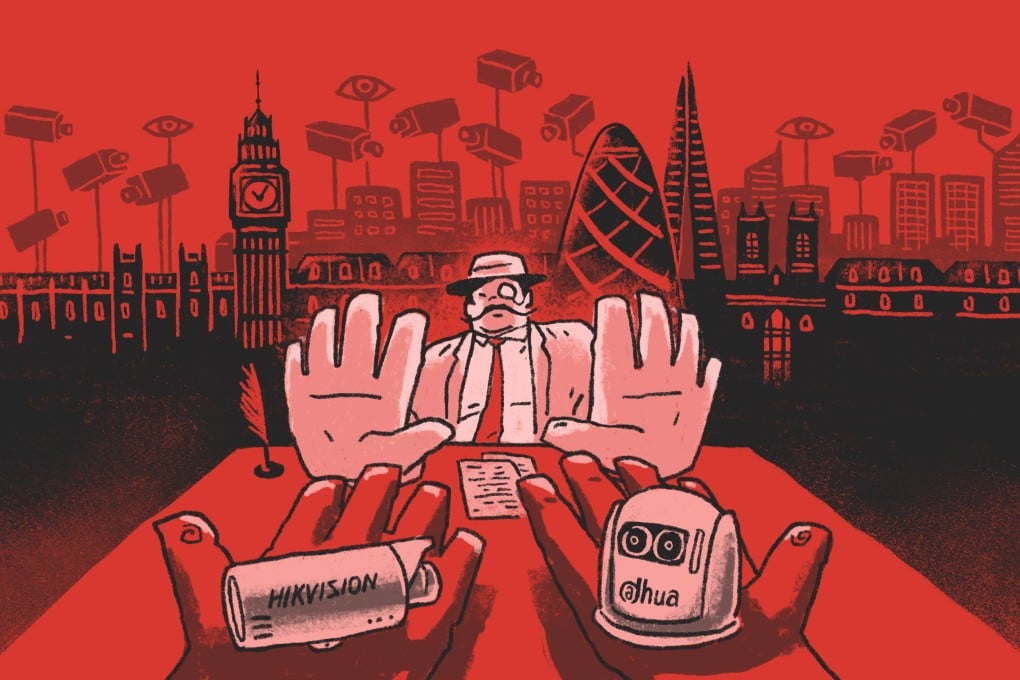Eye of the beholder: Will security and human-rights concerns get Chinese camera makers Hikvision and Dahua banned in the UK?
- A growing chorus is calling for a ban on the companies’ equipment for its purported use in surveillance in Xinjiang
- A new public-procurement bill could pave the way for a ban on government purchases

Much like China, surveillance cameras are a way of life in public spaces in Britain.
Widely found in schools, community centres and prisons, as well as on public transit, they act as silent deterrents and as tools for authorities looking to prevent or investigate illicit activity from minor theft to acts of terrorism.
“We shouldn’t be using companies that are complicit in genocide. That should not be allowable at all,” said Alicia Kearns, co-chair of the China Research Group and a Conservative member of Parliament. “On the other side of the coin, we are allowing China to build a tech totalitarian state and they’re going to build it on the backs of data from the people of Britain and other countries … We are essentially sending the facial and gait data of our children and people across the UK back to China and the [Chinese Communist Party] CCP.”
